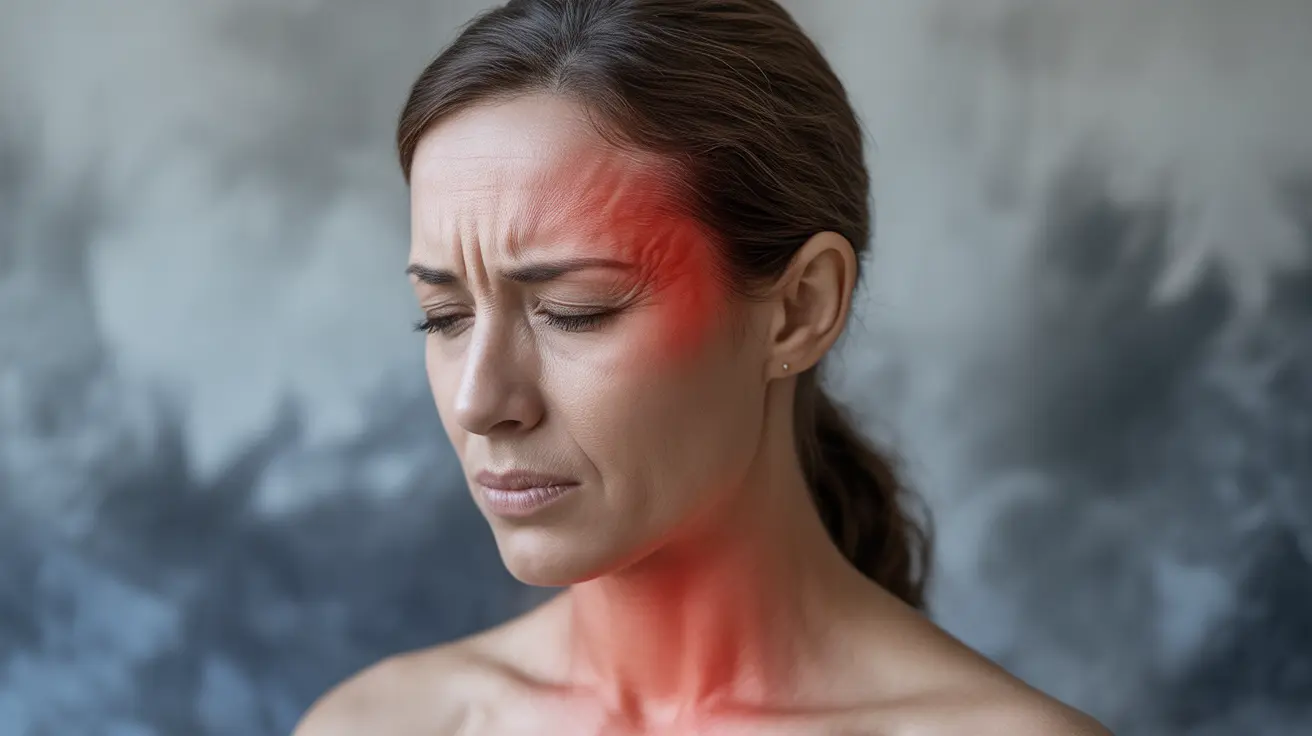Post-traumatic stress disorder (PTSD) can manifest in various physical symptoms, with headaches being one of the most common and debilitating complications. These headaches can significantly impact daily life, often intertwining with the emotional and psychological aspects of PTSD to create a challenging cycle of symptoms.
Understanding the connection between PTSD and headaches is crucial for both patients and healthcare providers, as it helps inform more effective treatment approaches and better management strategies. This comprehensive guide explores the relationship between PTSD and headaches, including symptoms, causes, and various treatment options available.
The Connection Between PTSD and Headaches
PTSD can trigger various physiological responses in the body, including increased muscle tension, elevated stress hormones, and changes in brain chemistry. These physical reactions often manifest as different types of headaches, primarily tension headaches and migraines.
The stress response activated during PTSD episodes can cause muscles in the head, neck, and shoulders to tighten, leading to persistent tension headaches. Additionally, the heightened state of alertness and anxiety associated with PTSD can trigger migraine attacks in susceptible individuals.
Common Types of PTSD-Related Headaches
Tension Headaches
These headaches typically present as a constant, dull pressure or tightness around the head, often described as wearing a tight band. They may be accompanied by:
- Muscle tension in the neck and shoulders
- Scalp tenderness
- Pressure on both sides of the head
- Worsening pain with stress or anxiety
Migraine Headaches
PTSD-related migraines often include:
- Intense, throbbing pain, usually on one side
- Sensitivity to light and sound
- Nausea or vomiting
- Visual disturbances (aura)
- Worsening pain with physical activity
Treatment Approaches
Medical Interventions
Several medical treatments can help manage PTSD-related headaches:
- Prescription pain medications
- Anti-anxiety medications
- Preventive medications for chronic headaches
- Beta-blockers or other medications to manage stress response
Therapeutic Approaches
Psychological interventions play a crucial role in managing both PTSD and associated headaches:
- Cognitive Behavioral Therapy (CBT)
- Stress management techniques
- Mindfulness meditation
- Trauma-focused therapy
- Relaxation exercises
Lifestyle Modifications
Important lifestyle changes can help reduce headache frequency and severity:
- Regular exercise
- Consistent sleep schedule
- Stress reduction techniques
- Proper hydration
- Trigger avoidance
When to Seek Professional Help
It's important to consult a healthcare provider if you experience:
- Severe or worsening headaches
- Headaches that interfere with daily activities
- New or unusual headache patterns
- Headaches accompanied by other concerning symptoms
- Inadequate relief from over-the-counter medications
Frequently Asked Questions
What are common symptoms of headaches caused by PTSD?
Common symptoms include persistent tension headaches, migraines, neck and shoulder pain, sensitivity to light and sound, and headaches that worsen with stress or anxiety. These headaches often coincide with PTSD symptoms like flashbacks or heightened anxiety.
How does PTSD lead to frequent tension-type headaches and migraines?
PTSD triggers the body's stress response, leading to increased muscle tension, elevated stress hormones, and changes in brain chemistry. This physiological response can cause muscle contractions in the head and neck, resulting in tension headaches, while the stress and anxiety can trigger migraine attacks.
What treatments are effective for managing PTSD-related headaches?
Effective treatments include a combination of medical interventions (such as pain medications and preventive medications), therapeutic approaches (like CBT and stress management), and lifestyle modifications (including regular exercise and proper sleep habits).
When should someone with PTSD seek medical help for their headaches?
Seek medical help if headaches are severe, persistent, or interfering with daily activities. Also consult a healthcare provider if you experience new headache patterns, additional concerning symptoms, or if current treatments aren't providing adequate relief.
Can therapy like cognitive behavioral therapy help reduce headaches linked to PTSD?
Yes, cognitive behavioral therapy can be highly effective in reducing PTSD-related headaches. CBT helps manage stress responses, develop coping strategies, and address underlying trauma, which can significantly decrease headache frequency and severity.




